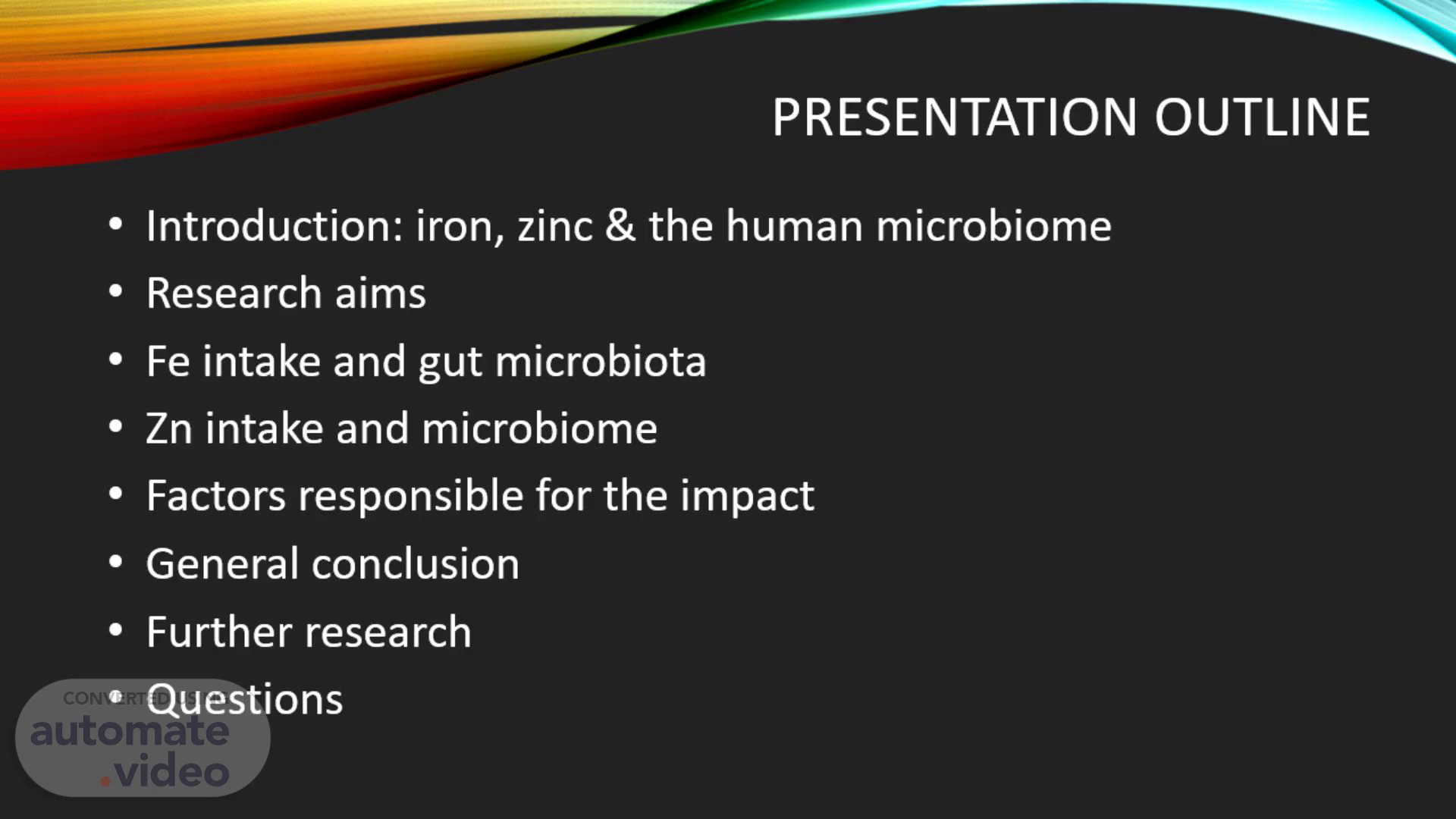
Presentation outline
Scene 1 (0s)
[Virtual Presenter] Bibliometric analysis is a scientific computer-assisted review methodology that can identify core research or authors, as well as their relationship, by covering all the publications related to a given topic or field.
Scene 2 (17s)
[Audio] Science is represented in the research on the topic of healthy ageing and longevity that serves as the entry point of Petropoulos' film that also opens in the lab. Only the sound of flies, that turns out to be a piece of sound design "magic" (Flies in the lab? Come on!) reveals the "objects" the researchers are dealing with. The hypothesis of the whole thing is that the microbiome of the intestines could hold the key information to crack the secret open..
Scene 3 (47s)
[Audio] Microbiome could be interpreted as the short- and documentary extension to the Greek "weird wave" present in the fiction features that also tend to be a bit scientific and more than a bit anthropological, and Petropoulos is quite aware of it. All the key elements are here: wide, beautifully composed static shots lensed by Yannis Kanakis that provide the overview of the situation all the time, some "acting" that would be considered mechanical in a fiction film, but here it merely suggests that the subjects are aware of the camera, and the deadpan humour that glues the whole thing together, just like the microbiome from the hypothesis and the title of the film..
Scene 4 (1m 28s)
[Audio] Is the future of medicine being played out in your intestine? Recent discoveries about the micro-universe nestled in our guts have enabled us to better understand such diverse conditions as diabetes, obesity, inflammatory bowel diseases, some types of cancer, and even autism and depression. This understanding gives hope for a cure for chronic conditions that have so far resisted the efforts of modern medicine. For a long time, little was known about the intestinal microbiota. It is now slowing revealing its secrets. "It's like discovering a new organ!" exclaims pioneering researcher Dusko Ehrlich. What makes it work? Symbiosis, i.e. the harmony between it and the rest of the organism. In fact, we have a kind of contract with the 100,000 billion bacteria living in our intestines: in exchange for room and board, they keep us healthy by producing a range of molecules. Thousands of scientists worldwide are currently working on decoding the singular language of this contract..